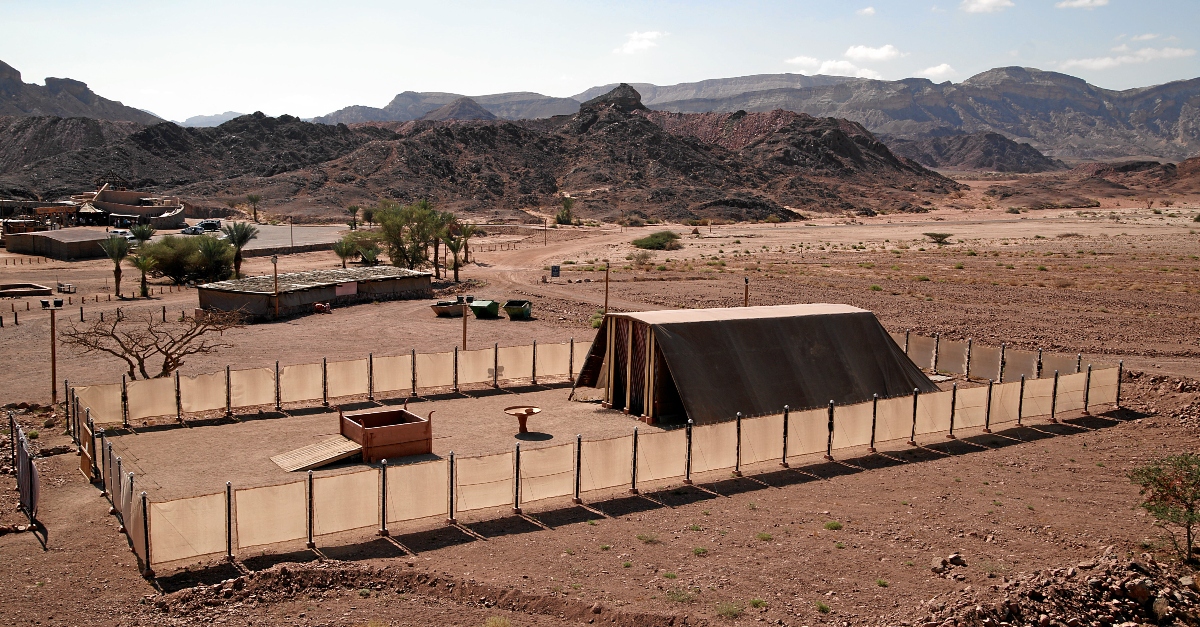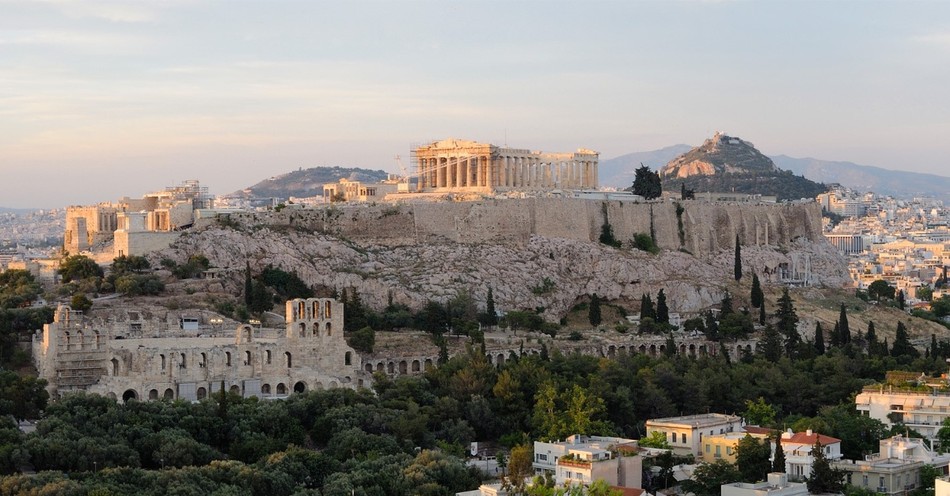The Feast of Tabernacles, also known as Sukkot, is a Jewish holiday. It is one of the three pilgrimage festivals mentioned in the Bible and is celebrated on the 15th day of the Hebrew month of Tishrei, which usually falls in September or October.
The holiday lasts for seven days and is a time for giving thanks for the harvest and for remembering the Israelites' journey through the wilderness after leaving Egypt. During the holiday, many Jews build and dwell in temporary outdoor structures called sukkot, which are meant to remind them of the Israelites' temporary dwellings during their wilderness journey.
The Feast of Tabernacles in the Bible: Leviticus 23:33-44
Then the Lord spoke to Moses, saying, "Speak to the children of Israel, saying: 'The fifteenth day of this seventh month shall be the Feast of Tabernacles for seven days to the Lord. On the first day there shall be a holy convocation. You shall do no customary work on it. For seven days you shall offer an offering made by fire to the Lord. On the eighth day you shall have a holy convocation, and you shall offer an offering made by fire to the Lord. It is a sacred assembly, and you shall do no customary work on it
These are the feasts of the Lord which you shall proclaim to be holy convocations, to offer an offering made by fire to the Lord, a burnt offering and a grain offering, a sacrifice and drink offerings, everything on its day-- besides the Sabbaths of the Lord, besides your gifts, besides all your vows, and besides all your freewill offerings which you give to the Lord 'Also on the fifteenth day of the seventh month, when you have gathered in the fruit of the land, you shall keep the feast of the Lord for seven days; on the first day there shall be a sabbath-rest, and on the eighth day a sabbath-rest.
And you shall take for yourselves on the first day the fruit of beautiful trees, branches of palm trees, the boughs of leafy trees, and willows of the brook; and you shall rejoice before the Lord your God for seven days. You shall keep it as a feast to the Lord for seven days in the year. It shall be a statute forever in your generations. You shall celebrate it in the seventh month. You shall dwell in booths for seven days. All who are native Israelites shall dwell in booths, that your generations may know that I made the children of Israel dwell in booths when I brought them out of the land of Egypt: I am the Lord your God.' " So Moses declared to the children of Israel the feasts of the Lord. (NKJV)
Meaning of the Feast of Tabernacles (Sukkot)
The Feast of Tabernacles is also called ‘Sukkot,’ the Hebrew word for ‘booths’ or ‘tents.’ The Jewish people constructed makeshift tents, just as the Israelites while roaming in the desert, for the feast to commemorate their liberation from Egypt by the hand of God. This joyful holiday is a recognition of God's salvation, shelter, provision, and trustworthiness. The Feast of Tabernacles is a 7-day autumn celebration honoring the 40-year pilgrimage of the Israelites in the desert. Along with Passover and the Festival of Weeks, Sukkot is one of three notable pilgrimage feasts found in the Bible when all Jewish men were expected to come before the Lord in the Temple in Jerusalem.

The image above is of a Tabernacle in Timna Park from Wikipedia
The Feast of Tabernacles in 2024
Sukkot commences five days after Yom Kippur, from day 15-21 of the Hebrew month of Tishri (which occurs in September or October). In 2024, the Feast of Tabernacles will begin on the evening of Wednesday, October 16, and end on the evening of Wednesday, October 23.
Feast of Tabernacles in the Bible
Biblical mentions of this holiday are found throughout the Old Testament, including Exodus 23:16, 34:22; Leviticus 23:34-43; Numbers 29:12-40; Deuteronomy 16:13-15; Ezra 3:4; and Nehemiah 8:13-18.
Learnreligions.com also highlights:
"As a feast instituted by God, Sukkot was never forgotten. It was celebrated in the time of Solomon: He (Solomon) offered the sacrifices for the Sabbaths, the new moon festivals, and the three annual festivals—the Passover celebration, the Festival of Harvest, and the Festival of Shelters—as Moses had commanded. (2 Chronicles 8:13, NLT)
In fact, it was during Sukkot that Solomon’s temple was dedicated: So all the men of Israel assembled before King Solomon at the annual Festival of Shelters, which is held in early autumn in the month of Ethanim. (1 Kings 8:2, NLT)"
Did Jesus Celebrate the Feast of Tabernacles?
Jesus not only observed this feast but also proclaimed one of his most essential prophecies during it. This holiday looked toward a coming time of messianic hope and salvation.
Premierchristianity.com explains the glorious declarations of Jesus during the Feast as found in John chapter 7:
However at the time of Jesus, Israel was spiritually destitute. They were living under Roman rule. Even the Holy of Holies was empty and dry. This moment in the feast wasn't just a cry for physical rain, but a desperate cry that God would pour out his spirit - the 'living water' they longed for.
It was during the height of this ceremony, on the final day of the feast, that Jesus chose to stand up and say in a loud voice: “Let anyone who is thirsty come to me and drink. Whoever believes in me, as Scripture has said, rivers of living water will flow from within them” (John 7:37-38).
Jesus was telling them the solution to their spiritual drought is found in him, the true water of life – what a declaration! No wonder when he said this, some declared, “This is the Messiah” (John 7:41).
The ceremony was a reassurance that God had vowed to send a light to restore Israel's glory, deliver them from bondage, and renew their joy. This was the connection for Jesus saying: “I am the light of the world. Whoever follows me will never walk in darkness, but will have the light of life.” (John 8:12).
The Feast of Tabernacles celebrates a future time when God will again tabernacle with us on earth when Jesus appears and renews all things.
“And I heard a loud voice from the throne saying, “Look! God’s dwelling place is now among the people, and he will dwell with them. They will be his people, and God himself will be with them and be their God. ‘He will wipe every tear from their eyes. There will be no more death’ or mourning or crying or pain, for the old order of things has passed away." (Revelation 21:3-4)
How do Christians Celebrate the Feast of Tabernacles?
While the observance of Sukkot may vary among denominations and individuals, some Christians celebrate it like Jewish traditions. Here are some ways in which Christians may celebrate the Feast of Tabernacles:
- Building a Sukkah: One key aspect of Sukkot is the construction of temporary booths or tabernacles, known as sukkahs. Christians who celebrate the Feast of Tabernacles may choose to build a sukkah in their backyard or participate in communal sukkah-building events.
- Dwelling in the Sukkah: During the festival, it is customary for Jewish families to eat their meals and, in some cases, even sleep in the Sukkah. Some Christians may adopt this practice as a way of participating in the tradition.
- Joyful Celebrations: Sukkot is often referred to as the "Season of Joy" or the "Feast of Ingathering," emphasizing the joyous nature of the feast. Christians may incorporate elements of joy, thanksgiving, and celebration into their observance of Sukkot.
- Reading Scripture: Christians celebrating the Feast of Tabernacles may include readings from the Old Testament, particularly passages in Leviticus. This can provide a biblical context for the celebration and deepen the understanding of its significance.
- Community and Fellowship: Like many Jewish festivals, Sukkot is often a time for communal gatherings and fellowship. Christians should come together for meals, worship, and other activities during this time.
Christianity.com's editorial staff is a team of writers with a background in the Christian faith and writing experience. We work to create relevant, inspiring content for our audience and update timely articles as necessary.
This article is part of our Bible resource for understanding the significance and meaning of biblical phrases and ideas. Here are our most popular Bible articles to grow in your knowledge of God's Word:
Promises of God in the Bible
Is "This Too Shall Pass" in the Bible?
What Was the Ark of the Covenant?
Top 10 Bible Stories for Kids
“Iron Sharpens Iron” in Proverbs 27:17
"Fearfully and Wonderfully Made" in Psalm 139
“Be Still and Know That I am God” in Psalm 46:10
"No Weapon Formed Against Me Shall Prosper" - Isaiah 54:17



